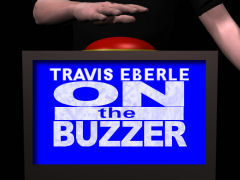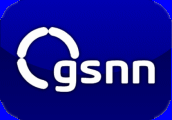|
L-O-U-S-Y
July 8
In my capacity as
reviewer, I generally try to give a new program a berth of one full
episode at the minimum on which to form an opinion. In this case I
needed just the one. Truthfully, I skipped ahead at various points. I
really didn't need to see more than a few words.
If you didn't know, the show began in the mid 1980s in syndication.
Teams tried to figure out what the five letter word was by guesses as
well as what letters were in the wrong or correct positions. They would
then pull out bingo balls and try to get five in a row. Winning teams
could scoop an enormous jackpot in the beloved bonsu game.
In 2002, Game Show Network brought the show back and it became the
network's longest running original series. It was easy to play along
with, had challenging puzzles and most of the time it built to an
exciting conclusion. Sadly almost none of that translated to the revival
of the revival.
Recorded on the barren stage of Baggage and hosted by Bill Engvall, the
show now touts a $100,000 top prize for teams that can navigate the end
game.
The first change is noticeable from the get-go. Instead of dipping a
hand into a massive clear bowl, players draw their balls from wine racks
behind them, breaking a cardinal sin of television: do not turn your
back to the camera. Ever. Anyway, the team that wins the opening draw is
given their clue and first letter.
That's right, you read correctly. Teams are now given a clue to the
answer along with the first letter in the word. In theory, this should
allow the show to have a bit more humor and should make it easier to
solve the puzzles for the players in studio and at home. In practice the
clues are straight forward and sophomoric, and teams spend much of their
time staring blankly at the scren, trying to think of a word that will
fit both the clue and the letters, instead of trying to get the most
information from the guesses, even if they're nonsensical.
Teams that solve words are paid increasing amounts of money, and if they
can make a Lingo they score the value of the word again. Lingoes sort of
took a back seat to the words in the first GSN version, but they're
nearly pointless now, especially since the tenth word of the game is
worth a thousand dollars.
The team that wins more money advances to the bonus round, where five
solves in 90 seconds wins the jackpot, though each solve after the first
doubles the main game money. The problem with this bonus format is that
teams either make it look too easy or fumble with it and leave with a
few dollars.
Host Bill Engvall was brought on to be funny, and he riffs with the best
of 'em. This would be acceptable except that it cuts into the already
precious little game time. Most of this is tying a comment into the
clue, and therefore predictable.
The players top out at barely competent, which is too bad because the
show could really use some decent players, which are far between. The
$100,000 top prize is laughable for such a game. It could have been cut
in half and the remaining $50k could have gone to the prize fund for 1
vs. 100, which dearly needed it. All in all, this adds up to a show that
is not worth your time. That disappoints me because while I thought the
2002 version had some problems but they got more right than wrong, and
"fixed" some things that weren't wrong for reasons known only to them.
Final verdict is: Pass.
Travis Eberle has plenty of other five-letter words to describe this
show. Ask about it and drop him a line at
traviseberle@gmail.com.
|

